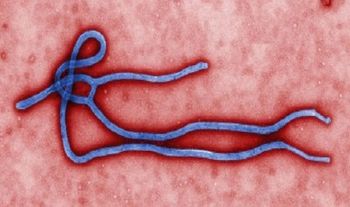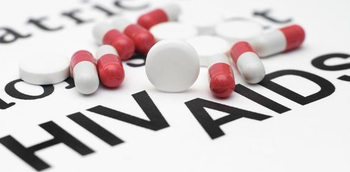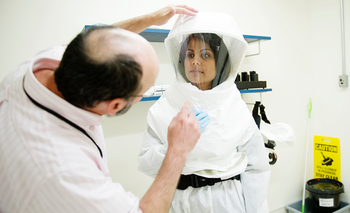
Researchers are relying on genetics to develop new approaches for combating drug-resistant bacteria.

Researchers are relying on genetics to develop new approaches for combating drug-resistant bacteria.

As the Ebola outbreak worsens, interest in therapies using recovered victims' blood grows.

The current Ebola epidemic is causing the health care system in West Africa to collapse.

Among HIV-positive patients, concurrent use of medications is associated with nonadherence to antiretroviral therapy.

Obama calls for international response to prevent "humanitarian catastrophe."

Potential for widespread chaos and eventual collapse of hardest-hit nations without ramped-up international response.

Influenza boosts the ability of pneumococci to cause middle ear and throat infections.

An experimental single-tablet regimen for treatment-naïve adults infected with HIV demonstrated non-inferiority to an FDA-approved combination pill in achieving undetectable viral load.

Officials from the US Centers for Disease Control and Prevention are urging all Americans aged 6 months and older to receive flu shots for the impending influenza season.


Pregnant women exhibit a more powerful immune response to influenza, but only half are currently vaccinated.

The FDA today allowed marketing of the first direct blood test for detection of 5 yeast pathogens that cause bloodstream infections.

Model used to predict eventual size of Ebola outbreak outpaced by scale of current epidemic.

Efforts to contain the virus increase as death toll continues to rise.

Thousands of US military personnel will deploy to West Africa.

Current transmission rates from primary cases to secondary cases could cause Ebola epidemic to explode.


Organization warns disease is spreading faster than it can be contained.

Lauren Forni, PharmD, RPH, of CVS/pharmacy, explains why pharmacists are providing vaccines to 2014 National Association of Chain Drug Stores (NACDS) Total Store Expo attendees.

Countries at highest risk for Ebola transmission identified through animal migration patterns.

Commentary stresses importance of safe removal of protective gear among those caring for infected patients.

A single dose of intramuscular peramivir (Rapivab) alleviated the symptoms of influenza in 2 clinical trials.

The FDA has approved the use of Sanofi's Menactra vaccine as a booster immunization against meningococcal disease in patients at continued risk.

Ebola epidemic expected to surge, though relief workers are already overwhelmed by increasing patient volume.

Progress made on new Ebola drugs as US government pledges resources to West Africa.